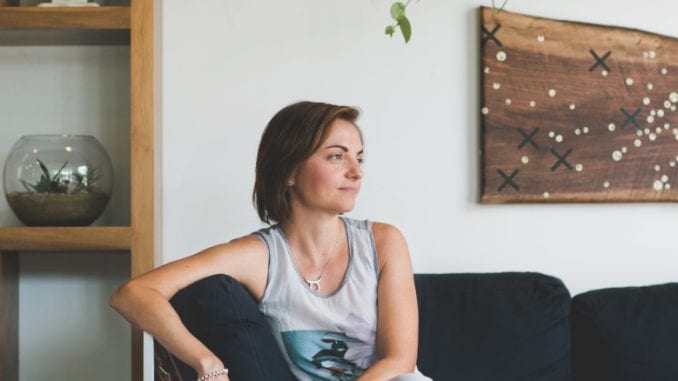
Sara Morrocchi is the founder of Vuna Origin Consulting and works all over the world to help small producers improve their crops and gain access to markets. She talks about her childhood, her first memories of coffee, and how to subvert the coffee supply chain.
BY CHRIS RYAN
BARISTA MAGAZINE ONLINE
Sara Morrocchi is a citizen of the world. Born and raised in Italy, she has lived in the United Kingdom, East Africa, and the United States—and currently resides in Amsterdam. As one might expect from someone with that multicultural resume, she speaks four languages: English, Italian, Spanish, and Swahili.
While her ability to take on new languages is impressive, perhaps even more remarkable is her devotion to strengthening the position of smallholder coffee farmers in producing countries around the world. She began this work in the mid-2000s with coffee importer Sustainable Harvest, first spearheading a project with smallholders to improve coffee quality and market access, and later becoming the company’s global supply chain director, leading sourcing operations in 18 countries around the world. (Disclosure: Sara and I were colleagues at Sustainable Harvest.)
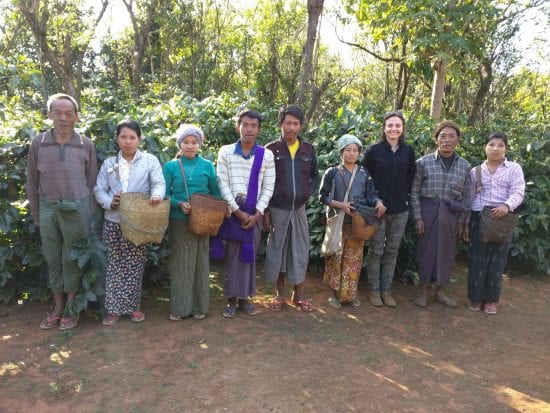
Sara went off on her own in 2015, starting Vuna Origin Consulting to provide guidance and oversight on projects benefiting smallholder farmers in coffee and cocoa, and working everywhere from Peru to Myanmar to Rwanda. We talked to Sara about her beginnings in coffee, the greatest challenges she sees in the coffee supply chain, and some of the lessons she has learned in working with farmers.
Chris Ryan: What are your earliest memories of coffee?
Sara Morrocchi: My first memory of coffee is my mom teaching me how to prepare an Italian caffettiera (also known as a Moka pot). She told me that as a grown-up (I was 7 or 8 years old), it was time for me to learn how to make coffee. She handed me our family choice of coffee (Lavazza’s Crema & Gusto blend) and taught me how to fill in the water chamber, put the filter on, add the pre-ground coffee, and switch on the stove. I stood in front the machine until the water began boiling and the entire kitchen started to smell like coffee. I served the coffee in small espresso cups and even got to drink a little bit. Lavazza Crema & Gusto prepared on the caffettiera became my routine, which lasted until I started working in specialty coffee.
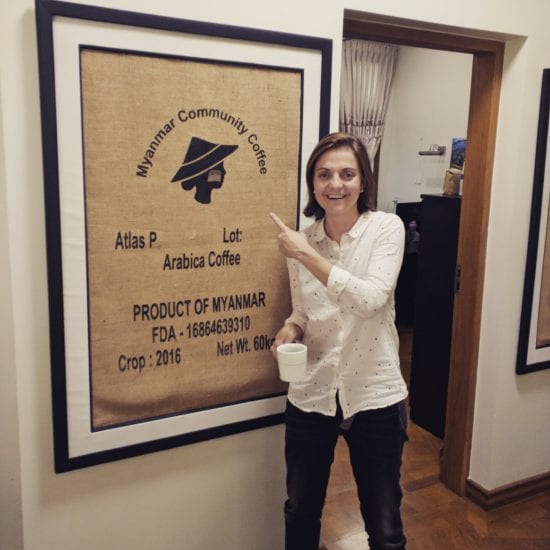
CR: How did you begin your specialty coffee career?
SM: In 2007 I was living in Kenya, working for an Italian non-governmental organization (NGO) specializing in grassroots development in Nairobi. Over time I grew increasingly skeptical of the development model of NGOs and what I saw as the limitations of that model to deliver impact. I wanted to change sectors and have more impact through my work, and I thought I could do that by working for a social enterprise. I came across Sustainable Harvest Coffee Importers—a green coffee importer known for their social impact model—and joined the company to run their very first origin project in Tanzania. I immediately realized how unbalanced and fragile coffee value chains are, and decided to embrace the cause head on. I have been in coffee ever since.
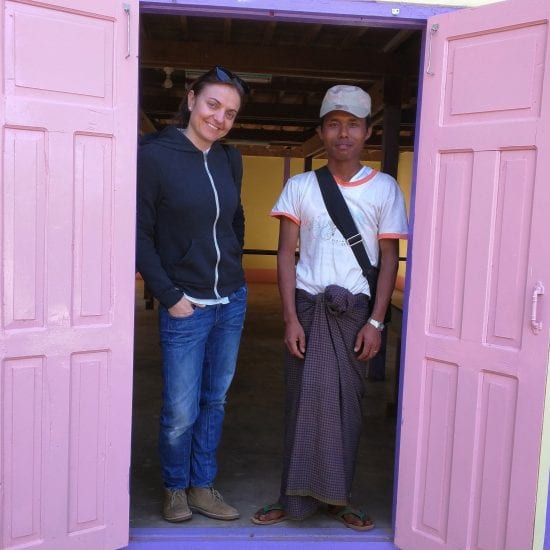
CR: Why is working with farmers important to you?
SM: Since I can remember, I have been interested in the reasons behind economic inequalities between north and south. Books like “No Logo” by Naomi Klein really influenced the way I made sense of global phenomena and ultimately determined how I shaped my career path. Working with farmers wasn’t always a focus of mine. But after a few years in East Africa it became increasingly difficult to ignore that subsistence agriculture is how millions of people survive. Poverty eradication is not a realistic goal unless one addresses the challenges that smallholder farmers face in producing countries.
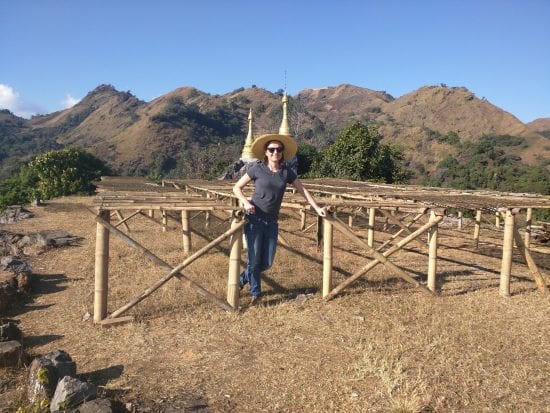
I believe coffee is the perfect example of the economic inequalities that exist today. Coffee has always been an everyday experience for me, but I treated it like a commodity—I thought it should be cheap and accessible. I didn’t understand that my experience of coffee came from a place of privilege. Working with coffee producers has helped me understand privilege and has led me to attempt to bridge the gap. At times I feel really discouraged, while other times I feel like we are making progress as an industry. But it has never been a straight line.
CR: What is your focus with Vuna Origin Consulting? What challenges are you trying to address with your business?
SM: I started Vuna to help improve the position of smallholder farmers in coffee and cocoa. These products have been turned into commodities, and the hard work and artisan-level craft of the producers behind these products isn’t being recognized. So my goal with Vuna is to work with companies and nonprofit organizations to provide farmer trainings, build and scale super-premium markets for these farmers’ products, and make farmers active participants in value chains that recognize their hard work and compensate them appropriately for it.
A challenge in the coffee supply chain that is a specific focus of my work with Vuna is the volatility of the commodities market. Today the C-market price for coffee poorly reflects the true value of coffee, and tends to drive down the price to levels that make it literally impossible for many producers to recover their costs of production and make a profit on the sale of their coffee. Hence the sustainability problem the coffee value chain is currently facing.
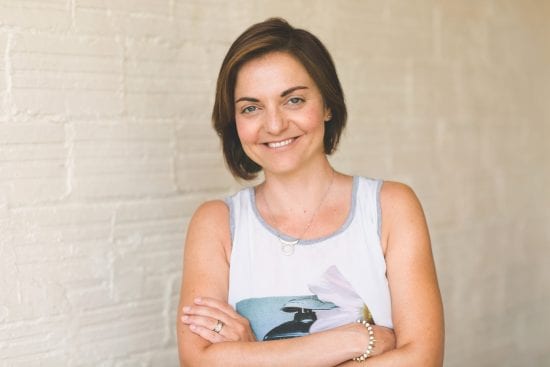
However, the market is tremendously resourceful. There are many price risk management products—for example, price insurance—that producers can purchase to protect themselves from price volatility. Unfortunately, the specialty coffee industry is only just beginning to understand how to make use of these tools and make them accessible to fragile value chains. I believe that giving all stakeholders access to these tools is crucial to the sustainability of coffee, and this is a major focus of my work with Vuna.
CR: How is living in Amsterdam? What’s the coffee scene like?
SM: I love living in Amsterdam. It is the perfect combination of big city with pronounced human dimension. Amsterdam is a city of sailors and merchants; this is where the first “commodity exchange” was engineered. I still speak zero Dutch—a not-so-friendly language for a Southern European—but I plan to take classes soon.
The coffee scene here is very vibrant. In the past few years there has been a surge of specialty roasters, and many cafes in town offer an interesting selection of drinks and single-origin coffees. I think the specialty movement has taken root in the city and other major urban centers around the country, but it is still far from reaching the mainstream. Events like the Amsterdam Coffee Festival have brought specialty coffee to a larger number of consumers here, and I think we’ll see specialty coffee get more and more popular in Amsterdam!


sara is an amazing strong woman to learn from!
she is just a change that a global wants to see,
inspiring one!